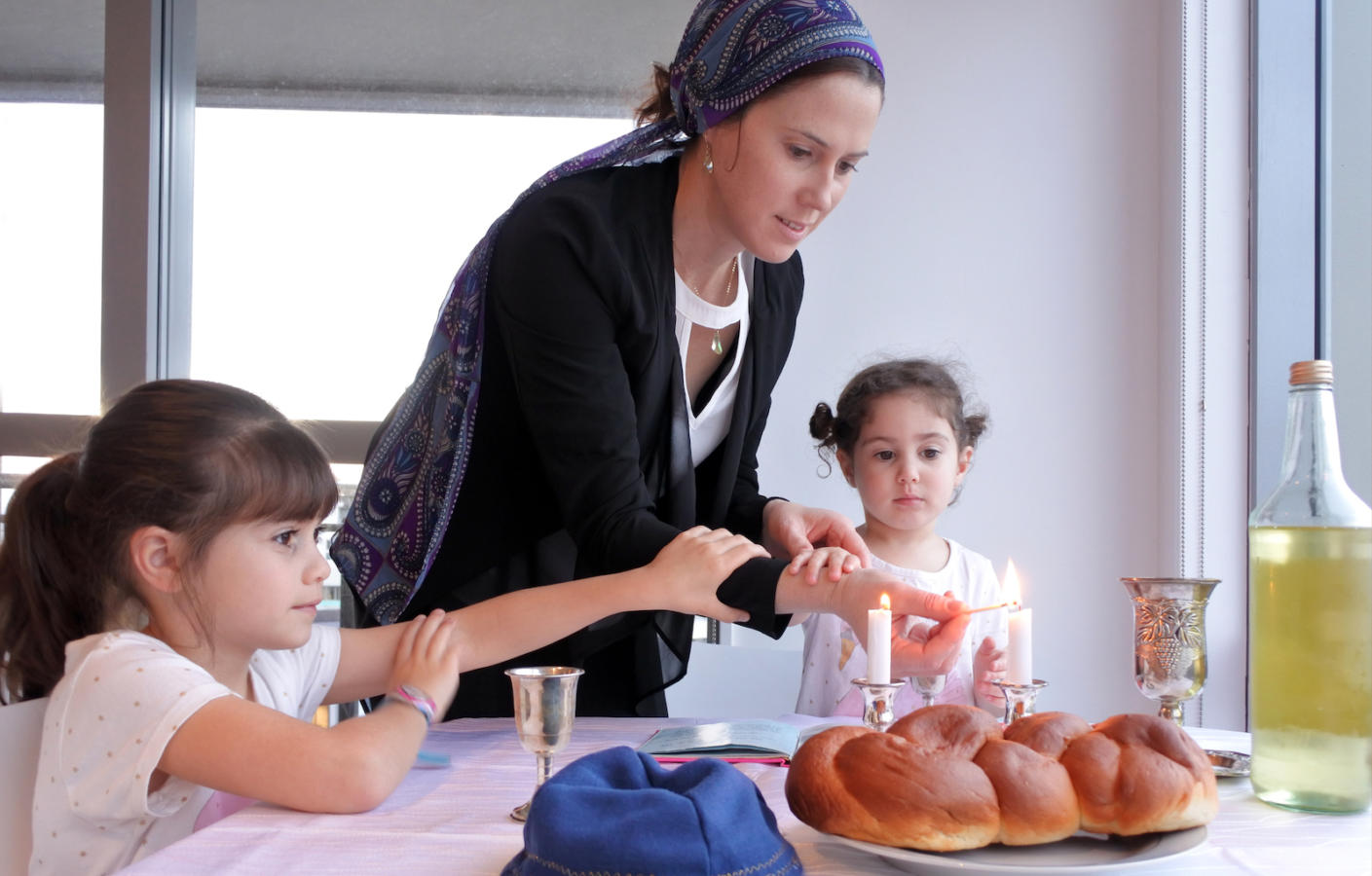It can often feel like a challenge to make Shabbat meaningful outside of attending synagogue and sharing meals with friends. But there are many ways to develop Shabbat practices that make the day feel special, celebratory, and restful even without those things. Regardless of your relationship to Shabbat rituals, there are many ways of making Shabbat special that can be done independently or alongside ritual practices.
Two rabbinic concepts offer us some tools. Kavod Shabbat (literally honoring or respecting Shabbat) refers to making Shabbat special with behaviors we don’t normally do during the week. Oneg Shabbat (literally, enjoyment of Shabbat) is about what gives you pleasure, which in rabbinic texts is often described in terms of eating special foods or drinking wine but which can be understood much more broadly.
During the week
The Talmud in Beitzah 16a teaches about Shammai the Elder that “all his days he would eat in honor of Shabbat. If he found a choice animal, he would say: ‘This is for Shabbat.’ If he then found another one choicer than it, he would set aside the second [for Shabbat] and eat the first.” Shammai was constantly keeping an eye out for special food for Shabbat. All week long he was on the lookout for the best possible meat for his Shabbat table.
Emulating Shammai, you can save special foods you encounter during the week for Shabbat – either foods that you don’t buy often or just foods that feel like a special treat. Some people reserve sweet cereal as a treat for Shabbat morning exclusively (ostensibly for children, but also for adults).

Help us keep Jewish knowledge accessible to millions of people around the world.
Your donation to My Jewish Learning fuels endless journeys of Jewish discovery. With your help, My Jewish Learning can continue to provide nonstop opportunities for learning, connection and growth.
You can extend this approach beyond food. Save a new novel, magazine issue, or that longform article to read over Shabbat. Maybe there’s an intriguing piece you’ve had open in a browser tab for a few weeks and haven’t gotten around to reading. Or perhaps you can plan a walk with someone you care about on Shabbat and look forward to it during the week.
On Friday
Erev Shabbat literally means the night of Shabbat, but it refers to Friday afternoon, the period before Shabbat begins at sundown. There’s a lot you can do on Friday to make Shabbat feel special, regardless of whether you strictly observe the rituals around abstaining from work.
Even if your Shabbat practice includes cooking on Shabbat itself, it can still be lovely to have special foods prepared in advance. There is a rabbinic idea that Shabbat is a taste of the World to Come, and one way to experience that is by not having to provide for your physical needs. By cooking even part of your food in advance, you can get a taste of what it’s like to have the world already made for you. In particular, if time allows, Shabbat is a great time to try out a new recipe or special dessert.
Another way to prepare for Shabbat on Friday is to clean. Going into Shabbat with your living space fresh can enhance a sense of the peace, restfulness, and specialness. This can be anything from scrubbing your whole kitchen from top to bottom to just making your bed. An additional perk of cleaning on Friday is that Shabbat is partly about the ceasing of physical labor. No matter your particular Shabbat practice, doing a little tidying and then pausing helps capture that feeling.
You can also take some of Friday to prepare your body for Shabbat. If you have time, take an extra-long shower, use a favorite lotion, cut your nails, or put on a fancy perfume or cologne. This way, you enter Shabbat feeling clean and renewed.
On Shabbat
The traditional practice is to eat three meals on Shabbat: Friday night dinner, Saturday lunch, and a third meal that is typically an early dinner on Saturday. Make one or all of these meals a special one with the foods you prepared earlier or the special foods you’ve been saving. Or pull out a tablecloth or nice china if you have it. Whatever you use, set the table before you sit down. If you drink alcohol, these meals are a great time to enjoy an adult beverage. Consider lingering over the meal, eating dessert and enjoying a cup of tea.
Your body can be another avenue to mark Shabbat. Many people have the practice of dressing up on Shabbat, and some even have special clothing they wear only on Shabbat. Shabbat is a great time to pull out a fancy dress that hasn’t seen a lot of use, or to wear fancier jewelry than you usually do, even just around the house. It’s also a good moment for perfume or cologne. Some people even have special Shabbat pajamas, which can be a real treat – especially if your Shabbat involves lounging around the house. And, if you’ve set aside reading material for Shabbat, don’t forget to read it.
Sign up for My Jewish Learning’s RECHARGE, a weekly email with a collection of Shabbat readings and more to enhance your day of rest experience.



